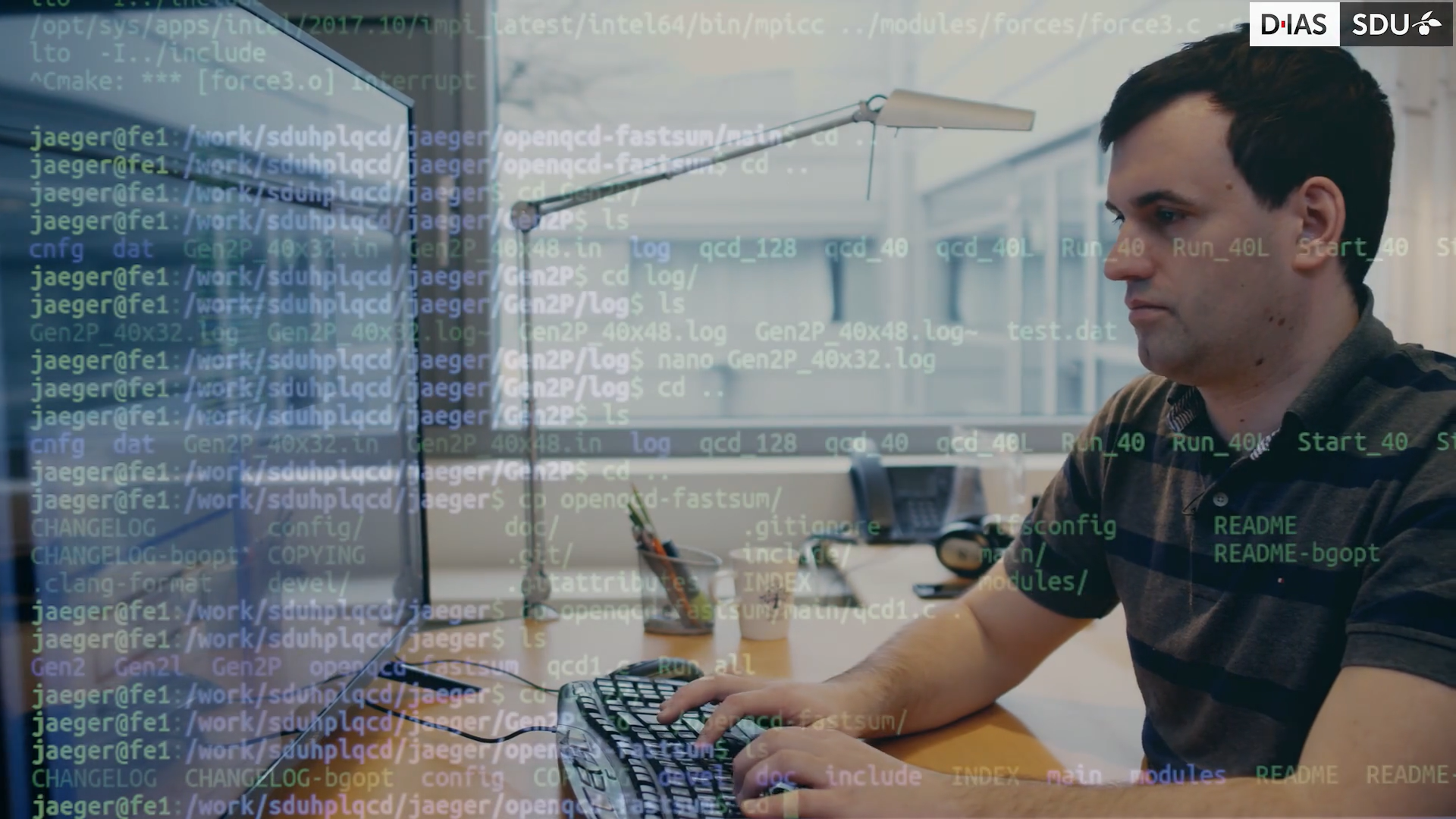
Understanding the Building Blocks of the Universe: Benjamin Jäger’s Research on Quarks and the Early Universe
As a theoretical physicist, DIAS Fellow Benjamin Jäger seeks to understand the mysteries of the universe. In order to do that, it’s necessary to study the basic building blocks of the universe, one of which are the quarks
Quarks are fundamental constitutes of matter which form protons and neutrons. They are bound together by the strong force, one of the four fundamental forces in nature and the strongest in the universe. The exchange particle is the gluon, which acts as a mediator between the quarks. This enables the existence of protons and neutrons. The strong force is a complex process that is yet to be fully understood. When exposed to high temperatures and pressure, quarks become almost free of particles.
After the Big Bang, the universe was in just such elevated state of heat and density. The expansion of the universe caused it to cool down into the current state of the universe. The question remains: How and when do quarks change from quasi-free particles into protons and neutrons?
To answer this, Benjamin Jäger creates large-scale computer simulations with the purpose of studying how quarks and the strong force interact. As this is a tremendously complex process, these simulations require a supercomputer. Luckily, University of Southern Denmark is in possession of one of these.
Benjamin Jäger, who is also a computer scientist, uses additional European supercomputers for his simulations, coordinated and organized by Partnership for Advance Computing in Europe (PRACE). The predictions from supercomputers are tested by other scientists, for instance at The European Organization for Nuclear Research (CERN). Despite using a supercomputer, the simulations can take a couple of months. The elite resources of the University of Southern Denmark coupled with the excellent research of the Danish Institute of Advanced Study is the ideal arena to undertake such venture:
Meet the researcher
Besides being a Fellow at DIAS for the past three years, Benjamin Jäger is Assistant Professor at the Department of Mathematics and Computer Science (IMADA) and Centre for Cosmology and Particle Physics Phenomenology (CP³-Origins) at University of Southern Denmark. He obtained his PhD with summa cum laude in 2013 from the Johannes Gutenberg University in Mainz and worked as a Postdoctoral Research Fellow at the Swansea University from 2013 to 2016. Afterwards he was a fellow at the Eidgenössische Technische Hochschule (ETH) in Zürich from 2016 to 2017.